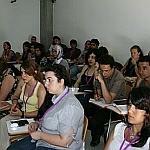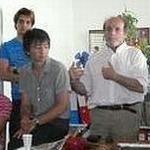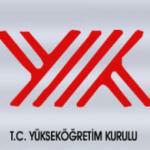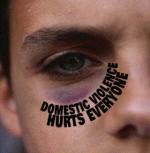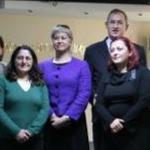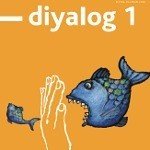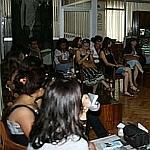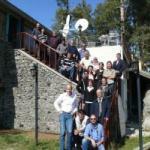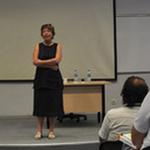"From the Classroom to the Newsroom" 2009
What You Don't Learn at University: Peace and Rights Journalism
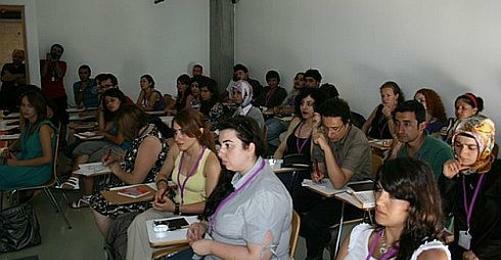
Run by the IPS Communication Foundation and supported by the Swedish International Development Agency (SIDA), the third "From the Classroom to the Newsroom" programme began on Sunday, 12 July.
Young graduates, mostly of communication faculties, are expecting to learn more about peace journalism, rights journalism and citizens' journalism. Here are their expectations of the course:
Nihal Giray (Yeditepe University, history): Actually, I am not a journalism graduate, but from history. There is a valuable, organised programme here. It is useful for learning things I did not know and for forming basic ideas about journalism. History needs different perspectives, and the perspective, observation, analysis and experience of journalism may be of use to me.
Berrak Sırma (Marmara University, radio and TV): I am in my second year. The programme here will help me to choose an area of specialisation. I think that things are sometimes different from how they are shown at university. We will visit TV channels, newspapers and radio stations. I will see the sector from the inside. Their experience is "more real".
İlknur Ekelik (Maltepe University, radio, cinema, TV): I hope that this programme will widen my horizon in terms of my career. I need to find myself work possibilities. I like looking at things from different angles. In fact, we don't know how to create news very well, we turn it into gossip items. That is wrong. This programme answers the question "How is news made?"
İbni Sina Ceyhan (Fırat University, radio and TV): I am in my third year and also present the news at our university's radio and TV news centre. This programme will offer new information and experience. I have heard about rights journalism but did not know any details. You can be sure that I will be following its principles.
Ferah Poyraz (Mersin, journalism): I read bianet anyway, and I wanted to take part in this course. When I was doing a placement in a mainstream media institution, I showed them the news I had read in bianet about the ship workers in the Tuzla shipyards. They were not aware of them. Then that newspaper sent a reporter to Tuzla. This course offers alternative information, experience and the possibility of seeing different perspectives to news. I am also interested in peace journalism.
Aslı Özyurt (Koç University, history): I am a history graduate, but I want to be a journalist. I can use a historical perspective in journalism. We are affected too much by the mainstream media, but we can see the real events here: making the voices of those heard who are not being listened to, voicing the problems of people.
Ayşen Yavaş (Eastern Mediterranean, journalism): I really wanted to meet Mete Çubukçu, and I did. It is very good that we are learning about journalists' rights and visiting news centres. I wish it were a longer programme.
Makbule Kayadibi (Lefke Europe University, journalism): It has been a great day. We have just received our university diplomas. It is very important to receive information from experienced peopple in order to prepare for a profession.
Mesut Kurtuluş (Mediterranean University, PR and advertising): Last year my friend took part and said it had been very useful, an experience of things you cannot learn at university. I was also motivated by listening to professionals talking about how things are done in a place like Istanbul.
Koray Yaşar (Izmir Economy University, media and communication): I was encouraged by my lecturer Sevda Alankuş to join. My aim is to see how theory is applied in professional life, to get to know people from different universities and to exchange ideas.
Ümit Altındere (Istanbul University, journalism): I first heard about this training course this year. University education is not enough, and this is a kind of intensive programme. It is of course not enough to work here for a week, the important thing is to apply the things discussed here as a way of life. Citizens' journalism and peace journalism for instance - we talk about them, but they need to become more prevalent and be carried to the communication faculties.
Perihan Dinler (Istanbul University, journalism): I already read bianet, and last year I heard about this programme and decided to join. It is just what I imagined, a chance to see the environment before starting work, meeting journalists, an experience we would not have had on our own.
Özge Koyla (Near East University, journalism): We only heard about peace journalism and rights journalism in one lesson at university. Now we can discuss these issues with qualified people in detail.
Selin Bayraktar (Izmir Economy University, media and communication): I want to learn here what I did not learn at university.
Abdullah Karlıdağı (International Cyprus University, journalism): I hope to learn how the alternative media works.
Emel Şen (Yaşar University, PR and advertising): I have come to learn about journalism.
Ayşe Yıldız (Atatürk University, journalism): I have come to learn about journalists' rights and about freedom of expression.
Pınar Avcı (Anadolu University, communication): I believe that I will benefit from meeting many different people with different perspectives.
Damla Kayayerli (Marmara University, journalism): I want to learn about rights journalism and how to apply it. We will visit NGOs, newspapers and radio stations. It is important for me to see processes. I will also listen to the experiences of graduates from different universities for a week.
Gülşah Güneş (Gazi University, journalism): I think that experienced journalists and academics can help be before I start work. I want to hear about how to apply rights journalism in the mainstream media.
Zeynep Güner (Bosphorus University, political science and international relations): I want to learn about rights journalism and how to right a good news item. When I read newspapers, I feel that there are problems, but I cannot quite point my finger at them. I think this course will be useful in that respect.
Vahap Karakılıç (Aegean University, radio, TV and cinema): I want to practice how to use a language that is different from the hegemonic language and how this can become more widespread.
Fatmanur Ayasun (Aegean University, journalism): I want to see how journalists face up to their profession, and how they deal with social codes and their own prejudices.
Çetin Ak (Kocaeli University, radio, TV, cinema): I want to learn about and discuss the alternative media.
Hatice Kaya (Ankara University, journalism): I want to find out about my trade union rights and about rights journalism.
Deniz Turan (İstanbul University, journalism): I want to learn basic information about journalism together with people from different universities. It will also be inspiring to see how media organs and NGOs work.
Journalists taking part in the educational course: Mete Çubukçu, Murat Çelikkan, Berat Günçıkan, Ahmet Tulgar, Tuğrul Eryılmaz, Burçin Belge, Esra Açıkgöz, İsmail Saymaz, Banu Güven, Demet Bilge Ergün and Yücel Tunca
Prof. Dr. Özden Cankaya, Prof. Dr. Sevda Alankuş, Assoc. Prof. Gülgün Erdoğan Tosun, Assoc. Prof. Mine Gencel Bek, Assoc. Prof. İncilay Cangöz, Dr. Atilla Özsever and Assist. Prof. Esra Arsan also take part in the training.
Communication lawyer Fikret İlkiz speaks about journalists' rights, while Prof. Dr. Şebnem Korur Fincancı, president of the Turkey Human Rights Foundation, will discuss rights and the media.
The trainees will visit the news centres of Radikal newspaper, CNNTürk, Açık (Open) Radio /Açık newspaper, the Human Rights Foundation (İHD), the Association for hte Support and Education of Women Candidates (KA-DER), the Social Workers' Association, and the Turkey Journalists' Trade Union (TGS). (EZÖ/AG)
This article contains contributions by Ceyda Ulukaya, Cihangir Balkır, Bawer Çakır, Tolga Korkut and Emine Özcan.




